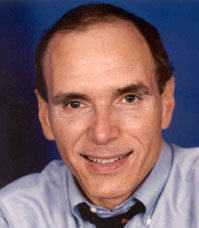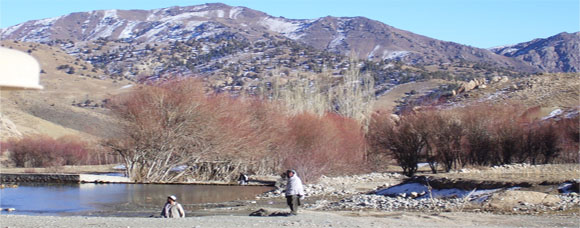|
| Rebuilding
Afghanistan - Washington Times Opinion Page July
19, 2004 |
|
| |
by
Don Ritter and Mahmood Karzai
KABUL — The election is over, and the people of Afghanistan
have won. Months of setting up for this important day, including
a voter-registration surge at the end, translated into success at
the polls and significance for people's lives.
The presidential election where the incumbent, Hamid Karzai, has
just won a second term? No. That one will take place on Oct. 9.
This was an election where small, large and medium-sized Afghan
firms from all over the country were represented by their leaders
and managers in building a new cornerstone institution for themselves
and the future of Afghanistan. Not sexy, you're thinking? Well,
think again. These are the people who are pushing for a market economy
and fairness and transparency in government actions. These are the
people who will grow a productive economy — one not based
mostly on charity — and provide the necessities of life through
gainful employment in lasting jobs that can substitute for employment
by warlords or drug lords.
That's important if there is to be a viable Afghanistan.
Business is the only force that can cut through ethnic, tribal and
religious barriers. It unifies by virtue of being blind to such
differences. Yes, it can make warlords richer, but it also provides
them with incentives for civility. Plus, it creates new centers
of power in the society.
Three hundred people were expected; 2,500 showed up to vote. Obvious
was their energy, their enthusiasm, their pride and their strength.
They were creating one of those institutions that become a pillar
of a free society, an economic power independent of the state.
In the words of the Afghan International Chamber of Commerce (AICC)
interim president, Hamid Qaderi: "AICC seeks, and we have started
to connect the business community to the very making of the policies,
laws and regulations that determine the destiny of the private sector
and a market economy in Afghanistan."
He added, "We create this strong voice, not only to promote
our own dreams of enterprise for ourselves and our families, but
the well-being of the people of Afghanistan, their children and
their grandchildren. By promoting with our words and deeds the 'market
economy' that our constitution designates for our country, we bring
the possibility of a new prosperity to Afghanistan."
While it may not grab the headlines, there is real progress being
made toward decentralizing economic power and building free markets
— oft-underestimated but vital factors in achieving democracy.
This national shift in policy toward private enterprise in Afghanistan
is also good news for an American public under a constant barrage
of bad news from Afghanistan.
At a time when the media focuses on relatively few individual cases
of death and destruction and whatever is going wrong in Afghanistan,
many tens of thousands of people are making positive contributions
daily, far outweighing the bad news. It is important for the American
people to know about the very special changes that are taking place,
the sacrifices, the courageous acts, and the dedication to the betterment
of family, community and country that goes on all the time.
Perspective and perseverance are not qualities of the news business,
but they had better be our business because that is what it takes
to succeed in Afghanistan.
Bringing up Vietnam is always dangerous, but it is so instructive
for our times.
Perhaps the most obvious case of snatching defeat from the jaws
of victory was the Tet Offensive of 1968. However bloody and violent,
it was a crushing military defeat for the Vietcong, curtailing their
ability as a major fighting force from that time on. Yet it was
played stateside by the media and the antiwar movement as a devastating
defeat for the Americans.
The battle was won there and lost back home.
Afghans are a brave, persevering and deserving lot. The world owes
them for their successful struggle to oust the Soviet Union from
their country. Remember, the Soviets were at the top of their game
when they invaded Afghanistan and at the bottom when they left.
President Reagan had lots of help from the Afghan people, as well
as vice versa. Afghans pricked the balloon of Soviet military invincibility,
paving the way for the end to the Cold War. Poland left Moscow's
clutches only months after the Russians' tail-between-the-legs departure
and the dominoes fell shortly thereafter.
The Cold War was red-hot in Afghanistan, and 1.5 million Afghans
lost their lives in an historic struggle. The world should help
them recover. In time, and with the help of their friends, the Afghan
people will deal with Taliban remnants and al Qaeda extremists.
They know how to persevere. But does America? Will a constant drumbeat
of negative noises over time drown out all the good things that
are happening and discount the courageous acts of so many Afghans
and their American partners?
Mr. Qaderi, who hails from Zabol province and a large and powerful
Pashtun tribe known for its independence, went on to say: "We,
Afghans, are accustomed to struggle and we are very good at it.
Now, we are soldiers in a new form of struggle ... fighting two
enemies — poverty and hopelessness — by giving our people
real jobs, not militia and drug-trade employment, and by serving
on the front lines in the battle to rebuild our country as quickly
as possible."
When our citizens can view the ups and downs of a long struggle
with some balance and recognize the contributions of all those who
are engaged in building up, as well as those making news tearing
down, we will gain the perspective that engenders perseverance.
Our enemies, from the Cold War to the war on terror, counted then
and count now on us having limited amounts of both.
We proved them wrong on the Cold War with just enough unity to prevail.
Hopefully, we'll find "just enough unity" to do it again.
Former U.S. Rep. Don Ritter has 25 years
of experience in working for the liberation of Afghanistan and is
the vice chairman of the Afghan American Chamber of Commerce. Mahmood
Karzai is an Afghan-American businessman and chairman of the Afghan
American Chamber of Commerce.
|
 PRINTABLE VERSION
PRINTABLE VERSION |
|



